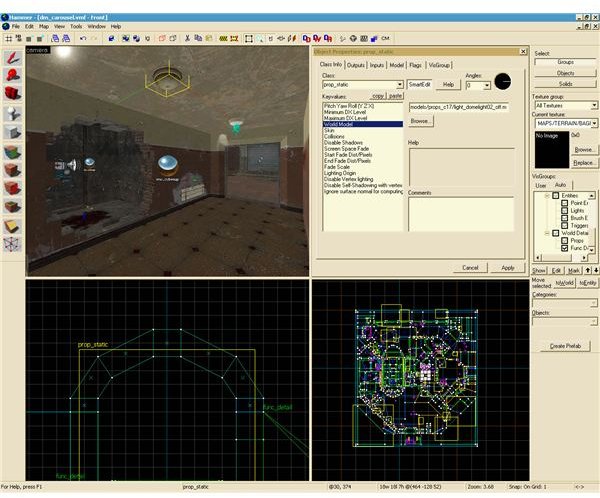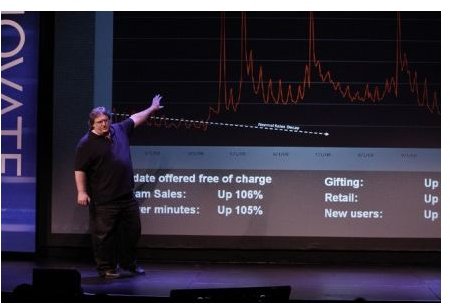Game Developers and Publishers Explained

Brand Loyalty
Brands and company names are just as important to gamers as to any consumer. If you play a game or use a piece of hardware that you like then you are more likely to trust the company that made it when buying future products. When it comes to hardware the names are obvious, whether it is Sony or Nintendo, Microsoft or Logitech, you can see at a glance who manufactured your product. With games the situation is a bit more complicated.
Which Name?
The production of games is a collaborative affair and if you buy a game in a box at retail then invariably it will have at least two company names on it, often more. There will be a publisher and a developer. Often there will be separate publishers for separate territories and sometimes games are developed by multiple developers. It is common for ports on separate platforms to be handled by a different company and occasionally the single player and multiplayer portions of a game will be made by separate developers. If you love the game and want to know what name to look out for in future then you should check who the developer is. Let’s take a look at what they do in closer detail.
What Developers Do
Developers are the real heroes of games development. The developers come up with the idea for the game, their designers create a detailed design document, their artists produce the environments and characters, their programmers implement the gameplay as described by the designers. All of the talent in making games resides with the developer. They typically work long hours for mediocre pay because they love what they do.
What Publishers Do
Publishers are responsible for manufacturing the boxed product, distribution and marketing. They advertise the game, arrange press coverage and produce the physical products before delivering them to stores around the world. The majority of games are also, at least partially, funded by publishers. They pay developers monthly and then recoup all of the money they paid out when the game goes to market before paying the developer a royalty (usually a small percentage).
Publishers With Internal Development Teams
Most of the large publishers have actually bought up developers now. This means they will typically have some kind of internal development team. In this case the game is developed and published by the same company, however, the developer part will often keep their original name, as with BioWare or be distinguishable by a sub title of some kind like EA Los Angeles. The publisher will often provide a team of games testers for the final stage of development but sometimes this is outsourced to a third party. The same goes for localization.
The Trouble With Publishers
If developers are lucky enough they can find private funding for their games or use profits from a previous project to fund a new one. If they sign up to a traditional publisher contract with monthly milestones then they have to jump through hoops with that publisher and often the hoops have little to do with making a good game. Despite the fact publishers lack the expertise to develop games they often allow marketing people and middle managers to interfere with the design and demand changes. They expect developers to shoulder a huge burden and because they hold the purse strings they can be as demanding and difficult as they like. Most developers will be able to tell you some story about a ludicrous demand they received from a publisher.
The bottom line is profit for publishers whereas for many developers all they care about is creating a great game. There are supportive publishers out there and developers who have enjoyed a massive level of success in the past will suffer less from interference but, as a general rule they like to exert some influence.
Lack of Imagination
Publishers have a lot of power in the games industry and the fact they are risk averse accounts for the high prevalence of licenses and sequels. It is easier to project a profit for a game that copies or builds on a previously successful title or a game that ties in with a new movie. They have little in the way of imagination and rarely fund projects that push the industry forward, although they will jump on the bandwagon of anything that has shown some success. Since they box the product and arrange press coverage they will typically make their company name the most prominent.
When it Works
When the relationship works the results can be excellent. Making a good game is rarely enough to bring developers the sales and attention they deserve. A good publisher will make sure consumers know about the game and they will be supportive and facilitate the development process rather than hinder it. When it doesn’t work games are buried forever and everyone concerned is left feeling frustrated.
Support Indie Developers

For the most part it is indie developers who actually drive things forward. If a developer can get free of the business minded approach that publishers insist on then they can innovate. There is a reason that Valve created Steam, a service whereby developers can sell their games online directly to gamers and earn a decent royalty without any creative interference.
The publisher is important to the gamer in terms of letting you know the game exists, actually getting the game on your hard disk, and in most cases, paying the developer to make the game, thus accepting the financial risks of a game that doesn’t sell well or get finished. But, the next time you play an awesome game, just remember the people who really made it are the developers.
